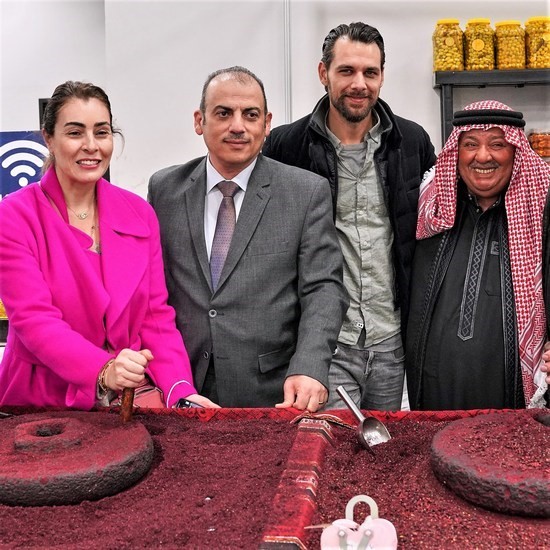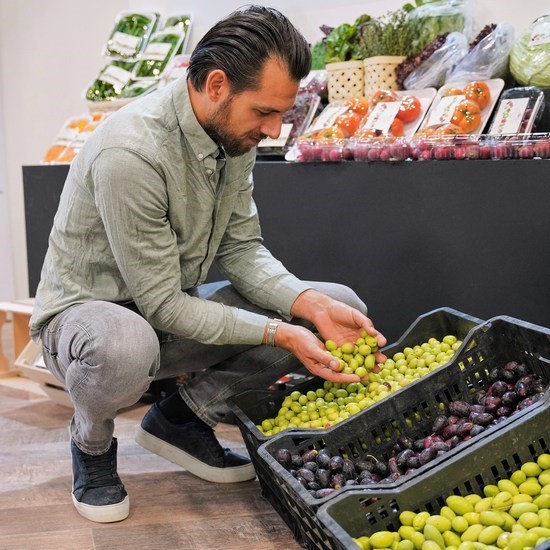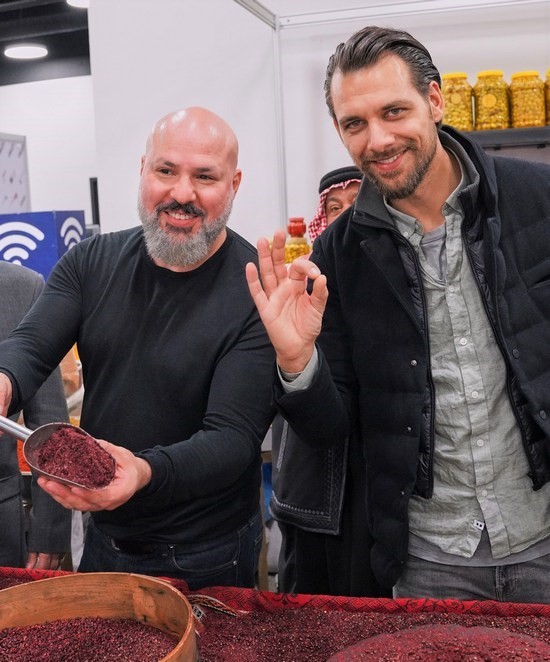AMMAN – This year's National Olive Festival and Rural Products
Exhibition are tinged with bittersweet emotions. As the festival marks its 23rd
year on November 23, the ten-day event, organized by the National Agricultural
Research Center (NARC) in collaboration with the Ministry of Agriculture, honors the
cherished fruit of Bilad Al-Sham, steeped in tradition, history, memories, and
rituals.
اضافة اعلان
The
beloved fruit, which is proudly featured on many Jordanians' sufra, sparks deep
conversations about the past, present, and future. However, this year's olive
harvest festival in Jordan carries a bittersweet undertone because it is
impossible to overlook the crops and harvesters in Palestine who, due to this
year's circumstances, cannot partake in celebrating the millennia-old
traditions and memories associated with the olive. One social media user took
to Instagram and said, "It should have been
olive season," referring to
the ongoing siege of Gaza and the
settler violence from the
Israeli occupation forces in Palestine, which have resulted in the deaths,
injuries, and detention of tens of thousands of Palestinians.
 Artisanal
grinding of dried Sumac on a traditional basalt stone mill
Artisanal
grinding of dried Sumac on a traditional basalt stone mill
from
left to right: Chef Maisa Miqdadi (owner Maisa Space), Dr. Nizar Haddad
(National Agricultural Research Center), Chef Jonathan Zandbergen (Michelin
Chef from the Netherlands), and a participant of the Rural Products Exhibition
This year,
Director General Dr. Nizar Haddad announced that the festival will forge a
partnership with the Jordanian Hashemite Charitable Organization (JHCO). A
campaign will be launched to collect cash and in-kind donations for the
affected and injured families in Gaza, as reported by the Jordan News Agency,
Petra. Additionally, services to ship olive oil abroad at preferential prices
will be provided, offering an avenue for supporting Gaza residents by
purchasing and dispatching products to them due to their inability to harvest
this year.
 Dutch
Michelin Chef Jonathan Zandbergen learned about the art of olive oil making in
Jordan
Dutch
Michelin Chef Jonathan Zandbergen learned about the art of olive oil making in
Jordan
The
festival in Jordan is an important reminder of the country's efforts to protect
its local products. With the increasing popularity of buying local and calls
for boycotts, it is becoming more important to transcend local boundaries. This
shift towards local products not only strengthens identity and solidarity but
also has long-term
socio-economic benefits.
The
Ministry of Agriculture is taking decisive steps to preserve this essential
aspect of national identity. Murad Maaytah, from the Ministry of Agriculture,
emphasized in an interview with a local news outlet that, for years, the
Ministry has restricted the importation of olive oil to protect local products.
 Dr.
Nizar Haddad, Director General of the National Agricultural Research Center,
explains about the oldest area in the world with olive trees to
Palestinian-Jordanian Chef Moeen AbuZaid from Toronto, and Michelin Chef
Jonathan Zandbergen from The Netherlands
Dr.
Nizar Haddad, Director General of the National Agricultural Research Center,
explains about the oldest area in the world with olive trees to
Palestinian-Jordanian Chef Moeen AbuZaid from Toronto, and Michelin Chef
Jonathan Zandbergen from The Netherlands
The current crop, which commenced on October 17, is anticipated to
yield 250,000 tonnes of olive fruits. Approximately 50,000 tonnes will be
utilized for picking purposes, while the remaining 200,000 tonnes will undergo
milling, according to Maaytah's statement.
When it comes to preserving local products, many Jordanians are prioritizing
locality over exports this year. During the 22nd National Olive Festival and
Rural Products Exhibition last year, the culinary tourism project "From
Farm to Fork in Jordan" extended invitations to international chefs, food
writers from Canada and The Netherlands, and prominent chefs from Jordan.
Interacting
with women from rural communities, local olive farmers, millers, beekeepers,
and home-based cooks, the chefs delved into the intricacies of the production
process of Jordanian Extra Virgin Olive Oil. They learned about grinding sumac,
explored different varieties of Za’atar, experienced the richness of Arabic
spices, and discovered unique products like hyper-local honey and saffron.
 Palestinian-Jordanian Chef Moeen AbuZaid from Toronto and Michelin Chef Jonathan Zandbergen from The Netherlands (re)discovering how to grind sumac in the traditional way
Palestinian-Jordanian Chef Moeen AbuZaid from Toronto and Michelin Chef Jonathan Zandbergen from The Netherlands (re)discovering how to grind sumac in the traditional way
However, this year, “From Farm to Fork in Jordan” has extended
invitations to Jordanian chefs, hoteliers, restaurant owners, and tourism
professionals. The visit, scheduled for Sunday, November 26, coincides with
World Olive Tree Day—a symbolic day for reflecting on peace, wisdom, and
harmony. This event stands in solidarity with Gaza and supports local
businesses, providing an opportunity to (re)discover culinary heritage.
The festival, as noted by Haddad, will achieve its desired goal of
providing a marketing window for the participants to support underprivileged
households. It also presents an opportunity for many participants to become
educated about local products, and traditional methods, and take home some of
the Kingdom’s finest goods.
Read more Around Jordan
Jordan News








